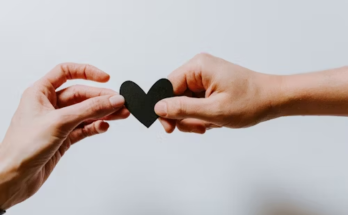Minimalism is a lifestyle that encourages eliminating unnecessary belongings from one’s physical and digital lives. This can increase productivity, deepen relationships, and give one a sense of freedom and peace.

Are You Deliberately Decluttering Your Home Or Wardrobe? These stories will inspire and motivate you to get started on decluttering.
The Joy of Decluttering
Decluttering has numerous psychological and physical advantages. It can help increase focus, build self-esteem and give you a sense of control in life; lessen stress levels; improve sleep; save money by helping to avoid unnecessary purchases; and even save you money by helping reduce expenses through better planning.
Minimalism should not be approached as a quick fix or seen as a lifestyle trend. Instead, it should be viewed as an individual decision explicitly tailored to you that allows you to select what works for you. This means you may need to assess and reevaluate your habits and possessions continuously.
Marie Kondo, the famed decluttering expert who hosts an internationally popular Netflix series about tidying, advocates that only items that “spark joy” should remain. She also advises us to confront our choices regarding our possessions and reconsider their significance.
If an item doesn’t add value, getting rid of it might be easier than you think. Sophie Scott, a cognitive neuroscientist from University College London, suggests that tidying can act as a reward, increasing the release of dopamine that causes joy when we purchase or receive something new.
The Joy of Organizing
Minimalism offers an appealing counterbalance to our consumerist society, which places too much weight on material possessions as an indication of happiness. Reducing the amount of clutter you own requires dedication, but once the journey begins, true joy awaits!
Joshua Fields Millburn of Seattle describes how minimalism helped him save money and reduce stress by creating space for what mattered most to him. However, many need to understand what minimalism entails and may shy away from its benefits due to any misconceptions they might have that it entails deprivation or living an unequal existence.
Colin Wright is a twentysomething entrepreneur and world traveller. With his dishevelled hair and clothes suggesting a wardrobe supervisor, he may give the impression of rock star status. However, his humility and sense of purpose set him apart from most twentysomethings his age.
His passion for travel inspired him to pare down his belongings to fit in a storage unit, and it didn’t feel like any sacrifice or loss; on the contrary, it taught him the value of giving back and helping others.
The Joy of Getting Organized
People who take steps to become organized find that it reduces stress levels, enhances productivity at work, and opens up time and space to pursue passion projects. Being more organized also makes taking care of essential duties easier, such as paying bills on time or making meals at home easier.
Unfortunately, many people struggle to remain organized. Whether they suffer from an underlying mental health condition such as anxiety or depression or find keeping track of things challenging, disorganization may quickly overwhelm them, and they may feel powerless over it all.
Plenty of online zealots preach that minimalism should be seen as a religion and strive for zero possessions. However, Colin, who successfully downsized his possessions to fit in a storage room before travelling the world, can preach this view of life.
Colin was not doing this out of righteousness or to impress others; his motivation was travel. He needed more space and money in his finances to achieve his goal of travelling more. To do that, he needed to get rid of stuff. Although that required hard work on his part, he approached it playfully like any child diving into their toy chest and throwing toys around with reckless abandon.
The Joy of Getting Rid of Clutter
Reduce clutter so you can more quickly locate what you need while saving money by no longer purchasing items that add little to no value to your life. Cleaning, groceries, and replacing broken items become cheaper as a result, as does creating room on shelves or closets for items that truly add value.
Minimalism has grown increasingly popular with those fed up with consumerism. Joshua Fields Millburn and Ryan Nicodemus, known as The Minimalists, had six-figure salaries before realizing their stuff was not making them happy; therefore, they decided to quit their jobs, downsize, and live a simpler lifestyle.
Now, they enjoy a lifestyle free from clutter and stress, which allows them to focus on the things that truly matter: meaningful relationships, personal development opportunities, and experiences that bring joy. Minimalism also saves them money and reduces debt-related stress levels. So, if you are looking for a fresh approach to life, try minimalism; you might be amazed at how much it improves your quality of life!
The Joy of Getting Rid of Digital Clutter
Internet technology enables us to access abundant data and information at our fingertips, but we need more data to focus on what is essential. By clearing away digital clutter from our lives, we can find more time for activities that truly matter.
Minimalism can also help you save money. By cutting out expenses like eating out or frivolous shopping, more cash will find its way into your bank account, and debt costs will decrease—ultimately leading to financial freedom and peace.
Minimalism makes moving easier. Americans typically move 11 times during their lifetimes, and it is much simpler and faster when there are fewer items to pack up and transport. Furthermore, carrying less can make finding items lost more straightforward; Americans spend 5-20 minutes daily searching for misplaced or lost belongings; living a minimalist lifestyle reduces this amount by having less stuff that you might lose!
The Joy of Getting Rid of Unnecessary Possessions
Decluttering and organizing can be daunting when you have too much stuff. By embracing minimalism, your physical environment will more accurately reflect your mental state, decreasing stress and anxiety and freeing up more time for creativity and meaningful relationships.
The authors recommend adopting the “one in, one out” rule when it comes to your possessions to ensure they’re useful or provide value in your life. For instance, if something no longer serves its original purpose (such as a notebook from 8th grade or Disney VHS that holds sentimental value), consider donating it. This will free up space while also freeing up some cash, which can go toward savings or experiences.
Chayka writes that minimalism is not only about purchasing what we need or discarding things we do not; it is about experiencing life fully and confronting ourselves without hiding behind protective barriers. As examples of minimalist art, he cites the work of Agnes Martin with her poised abstractions, Walter De Maria with his dirt field in white boxes, and Donald Judd’s 100 Untitled Works in Mill Aluminum in Marfa, Texas.
The Joy of Getting Rid of Unnecessary Stuff
Reducing unnecessary items from your life is genuinely exhilarating, whether cleaning out an overflowing closet or clearing away clutter in the kitchen – it feels like an enormous burden has been lifted off your shoulders. You can finally breathe freely once more.
Minimalism can also improve mental health by eliminating distractions and relieving stress. Focusing on what truly matters – relationships and experiences – minimalism encourages strong feelings of self-worth and respect in its practitioners.
Minimalism can also help improve financial health by encouraging responsible consumption and eliminating wasteful spending. Instead of mindlessly buying new items, minimalists consider each purchase carefully before making it—only buying what is necessary and of high quality that will last them an extended period of time.
Minimalism can help alleviate your fear of missing out (FOMO). In a society that places such an emphasis on material wealth, minimalism provides an excellent way to channel energy towards experiences and meaningful connections with others—particularly helpful for individuals suffering from FOMO and feeling anxious about keeping up with social trends.



